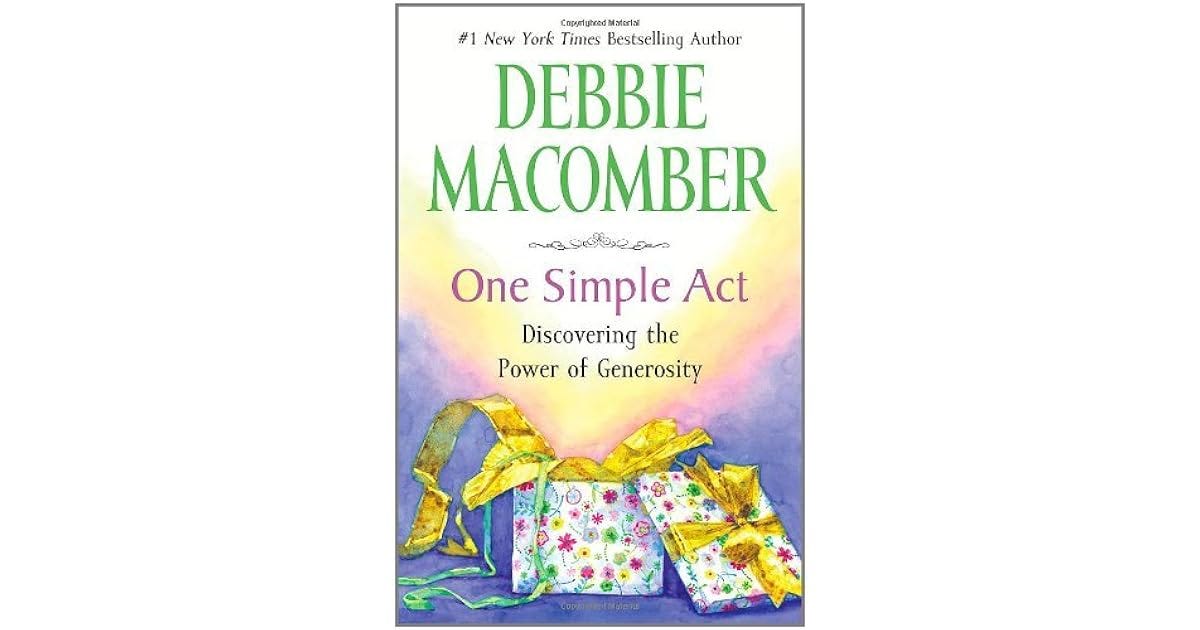Book Review of “One Simple Act: Discovering the Power of Generosity,” by Debbie Macomber, 2009. New York: Howard Books, Div. of Simon & Schuster. Paper.
People generous with their time are needed to help the homeless!
Helping the unhoused takes a great deal of time. Students of social work and other areas of study related to providing assistance to the homeless sometimes do not realize this.
There are now well over 79,000 homeless people in Chicago and more than 51,000 migrants in the city. Official numbers recently mentioned by the Mayor’s Office put the momeless (migrants who are homeless and that means all of them) well over 50,000 after all (https://www.chicagotribune.com/2025/03/12/chicago-cook-county-census/). Some of us knew it was edging up…
But for now, the arrivals here have slowed way down in Chicago. Threats of deportation and worse—being captured and sent to the concentration camps in El Salvador—have stopped the migrants coming into the United States. There are two accounts now of two individuals who wound up in that death camp by mistake and the current administration it is claiming there is no device for returning them to the United States (https://metro.co.uk/2025/04/02/trump-sent-father-el-salvador-prison-mistake-now-cant-get-back-22832981/).
Counseling, psychology, sociology, and education majors all need good internship experiences. Faculty members in those—and additional areas—can inform the students about the terrible realities of homeless numbers in the United States.
Remember that as of January, 2025, over 770,000 individuals were homeless. Being unhoused has to do with poverty, lack of opportunities, and many other factors—including race—that contribute to persons living outdoors or in shelters or in garages, etc. And race is very important: “Over 240,000 homeless Americans — 31.6% of the homeless population — identified as Black, African American, or African in 2024” (https://usafacts.org/articles/how-many-homeless-people-are-in-the-us-what-does-the-data-miss/).
For many years, assistance to the homeless in the form of providing translation for migrants, work at food pantries, and providing dollars to help families and individuals in need have been put to good use. In this particular book, we see some people who are generous with their resources.
Debbie Macomber gives us dozens of great examples of persons sharing their time, money, and resources to help others. In many cases, the people have not even intended to be so generous. However, something overcomes them. And that is the encouraging and exciting part of the whole volunteer experience. Whether people give money or time, they can get those wonderful feelings.
Macomber talks about a "God nudge" that helps us remember to be nice to others and help them when they are in need. One nice example is how a woman helps a homeless man by giving him food. She thinks of her son who has a problem with drug addiction and who is out there somewhere, needing a meal. She thinks of him getting money and buying his next fix -- instead of buying something to eat. So she buys this stranger something to eat -- and feels less helpless about her son's situation.
This book is a classic for your personal library as an individual needing encouragement and hope—in times when things will undoubtedly get a lot more difficult. It will be harder to help the unhoused every day. Harder to find resources for the unkeyed. Harder to find food and clothing for the unshowered.
With hope, we can see the light at the end of the tunnel. We can listen to Macomber and others who remind us there are better times ahead, a return to normalcy coming, some days to rejoice down the road.
I have come to meet many, many very generous people in the last few years. I have met some idiots too, but I do not know how to help them. Sometimes I give them a lecture, sometimes I try to teach them to behave better. However, mostly I spend my energy working with/working on people who seem to be able to function and learn more easily and incorporate those individuals more and more in my circles and networks.
Macomber uses many examples of people somehow suddenly thinking of ways to help. She connects this to Christian examples of good deeds, and she provides reminders of Christ telling us to help our fellow man.
God nudges us every day. I can tell you about more than dozens of examples. In fact, I can tell you about “a kerfillion” examples.





